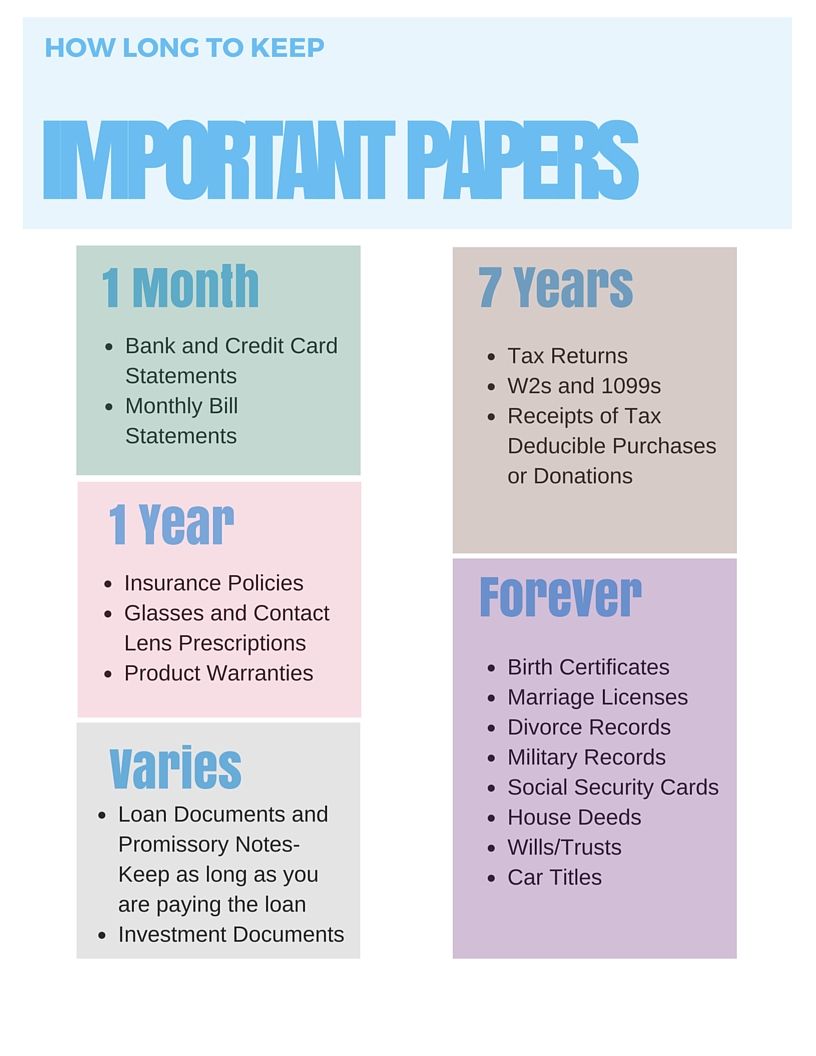How Long Should a Business Keep Paperwork?

How Long Should a Business Keep Paperwork?

Running a business involves keeping track of a plethora of documents, from receipts to tax filings. Knowing how long to keep business records is essential for legal compliance, efficient operations, and effective tax preparation. This article will guide you through the intricate details of document retention, offering insights into common records, legal requirements, and best practices for document management.
Understanding the Importance of Document Retention

Maintaining paperwork isn't just about organization; it's about having the right information at hand when you need it:
- Legal Compliance: Each industry has its own set of regulations regarding document retention. Ignoring these can lead to hefty fines or legal repercussions.
- Tax Purposes: The IRS has its own rules, which, if not followed, can result in penalties and interest.
- Business Strategy: Historical data from records can guide future business decisions, providing insights into customer behavior, sales trends, and financial health.
Common Business Documents and Their Retention Periods

Here's a table outlining common business documents and the typical periods for which they should be retained:
| Document Type | Retention Period |
|---|---|
| Tax Returns | At least 3-7 years |
| Bank Statements | 3-7 years |
| Invoices and Receipts | 3 years after the transaction date |
| Payroll Records | At least 3 years (in some cases, longer for employee issues) |
| Employee Files | At least 3 years after termination |
| Contracts and Leases | At least 7 years after expiration |
| Business Licenses and Permits | At least 5 years after expiration |
| Audit Reports | Permanent (often kept indefinitely) |
| Financial Statements | Permanently |

🔑 Note: The suggested retention periods are a guideline, and industry-specific regulations or unforeseen situations might necessitate different retention times.
Tax Compliance and Record Keeping

For tax purposes, the IRS has established minimum retention periods:
- Tax Returns: Keep copies of your tax returns for at least three years from when you file.
- Supporting Documents: Documents like receipts, expense records, and invoices should be retained for at least three years from when the tax was filed, although some records might be required for up to seven years.
💡 Note: Always keep records related to assets and depreciation (like purchase receipts for equipment) for as long as you own the asset plus six years after selling it.
State and Industry Specific Retention Requirements

State regulations can differ significantly, and your industry might impose specific requirements:
- Healthcare: HIPAA requires healthcare providers to retain medical records for at least six years from the date of treatment.
- Finance: Banking institutions often have to retain transaction records for five years or more, with some records retained indefinitely.
- Construction: Retain construction contracts and related documentation for up to 10 years due to long-term liability and warranty issues.
Best Practices for Document Management

Effective document management involves more than just retention; it's about accessibility and security:
- Digital Storage: Transitioning to digital storage helps in reducing physical storage space and makes retrieval easier. Use secure cloud storage or on-site backups.
- Regular Audits: Periodically audit your records to remove unnecessary documents and ensure compliance with retention policies.
- Security Measures: Implement encryption and access controls to protect sensitive information from unauthorized access.
- Disposal: When it's time to dispose of records, use shredding services for physical documents and secure deletion for digital ones to prevent identity theft or data breaches.
📝 Note: Regular backups are crucial when dealing with digital records. Consider having off-site backups in case of data loss or natural disasters.
To recap, managing business paperwork effectively involves:
- Understanding your industry’s regulations.
- Keeping records as required by law, including IRS guidelines.
- Implementing best practices for storage, access, and disposal of documents.
- Using digital tools to enhance document management processes.
Why is it important to keep business documents for longer periods?

+
Keeping business documents for longer periods can be beneficial for several reasons, including tax audits, legal issues, and historical reference for decision-making. It also ensures compliance with industry regulations and minimizes the risk of penalties or legal disputes.
How should a business handle electronic records?

+
Businesses should handle electronic records with the same diligence as physical ones. Use secure storage solutions, regularly back up data, encrypt sensitive information, and ensure records are easily accessible when needed.
What happens if a business fails to comply with document retention laws?

+
Failing to comply with document retention laws can result in legal actions, fines, and penalties. It can also lead to losing valuable business records needed for dispute resolution or tax audits, potentially damaging the business’s reputation and financial health.